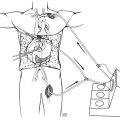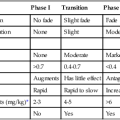The number of people 60 years and above will double to 2.1 billion worldwide by 2050 according to World Health Organization (WHO) statistics. People aged 80 years or older will triple to reach 426 million in the period 2020-2050. Clearly, increasing global population of older individuals has created a significant demand for specialized care services. As countries grapple to care for an aging population, there are specific actions that can be taken to ensure that the elderly receive the right care and treatment while ensuring that their dignity remain intact.
Patient-Focused Care
The aging process increases the risk of developing chronic diseases because of cellular, hormonal, and immune system changes as well as lifestyle factors, and genetic predisposition. Although aging is a natural process, these factors can significantly influence the development of chronic diseases. Elderly people need caregiver services to help them with daily living allowing them to maintain their quality of life and live safely and comfortably. For example, a senior may have decreased mobility, strength, and flexibility making it difficult to perform tasks such as bathing and using the toilet. Thus, under the patient-centered care approach, individuals are encouraged to make decisions about their daily life and care promoting a sense of control and independence. Furthermore, activities and programs are meant to stimulate the interests of residents and encourage social interaction. However, for those whose family members stand as their caregivers, respite care may be needed to avoid burnout and maintain their own well-being. Respite care also alleviates stress within families improving communication and support.
Comprehensive Care and Services
Those with complex medical conditions or people with chronic illnesses such as heart disease, diabetes, or dementia require specialized care and support. Elderly individuals living alone benefit from caregiver services to ensure their safety and well-being while those facing terminal illnesses need specialized care and support during this difficult time. Comprehensive services in elderly care may include personal care such as assistance with bathing, dressing, and grooming. Tasks such as cooking cleaning and laundry may also be performed by caregivers as well as assistance in monitoring and administering medications. Moreover, social interaction and emotional support are part of the caregiver services that may be provided to the elderly including chaplaincy services to address their spiritual needs.
Technology-Supported Care
Also known as telehealth or remote monitoring, technology-focused care for the elderly is a growing trend in the field of elder care. It uses technology to provide care and support to older adults often from a distance. This method can assist in improving the quality of life of seniors especially those who live independently or in remote or rural areas. For instance, remote monitoring devices can track various health indicators such as heart rate blood pressure and oxygen levels. Other devices can also detect falls and emergencies. On the other hand, video conferencing allows older adults to connect with healthcare providers, family members, and friends from the comfort of their own homes. Medication management systems assist seniors manage their medications by providing reminders and adherence alerts. Furthermore, assistive technology and devices such as hearing, and mobility aids help older adults keep their independence.
Elderly care can be provided in a variety of settings such as homes, nursing homes, and assisted living facilities. The specific services required will depend on the individual’s needs and preferences. A patient-centered approach, comprehensive care, and technology-supported care are some of the trending approaches that may be applied.




